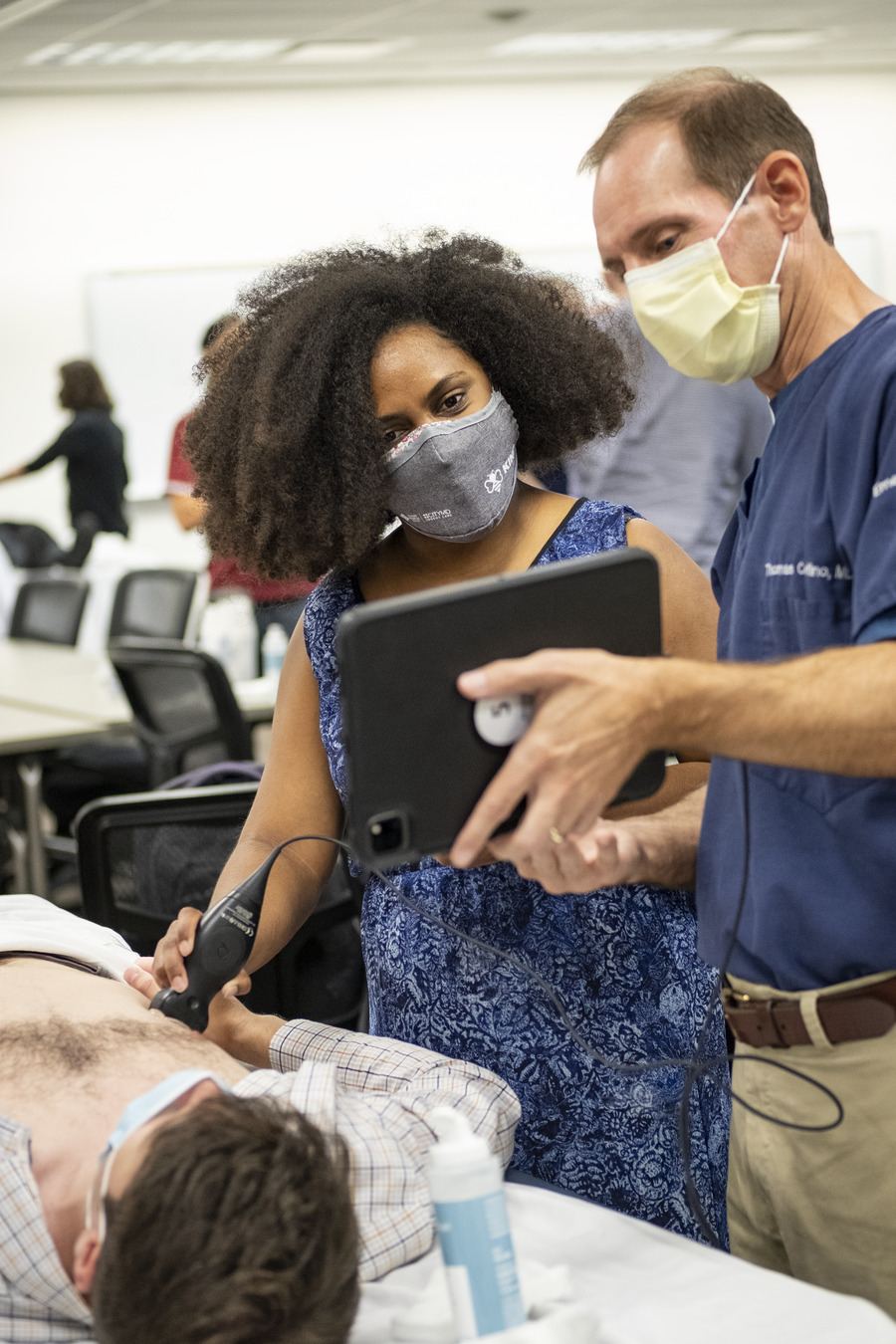Point-of-Care Ultrasound
 Point-of-care ultrasound (POCUS) refers to the use of ultrasound at the patient’s bedside for either diagnostic or therapeutic purposes. It is an accurate, noninvasive, portable diagnostic modality that can augment the physical exam and the physician’s ability to safely, efficiently, and accurately diagnosis and treat their patients. POCUS has been shown to decrease time to diagnose time sensitive medical conditions, to minimize delays in patient care as well as decrease procedural complications when they performed under ultrasound guidance. The Katz School of Medicine longitudinal POCUS curriculum prepares students to use this tool to augment their physical examination skills and integrate the use of ultrasound in diagnosing and treating patients.
Point-of-care ultrasound (POCUS) refers to the use of ultrasound at the patient’s bedside for either diagnostic or therapeutic purposes. It is an accurate, noninvasive, portable diagnostic modality that can augment the physical exam and the physician’s ability to safely, efficiently, and accurately diagnosis and treat their patients. POCUS has been shown to decrease time to diagnose time sensitive medical conditions, to minimize delays in patient care as well as decrease procedural complications when they performed under ultrasound guidance. The Katz School of Medicine longitudinal POCUS curriculum prepares students to use this tool to augment their physical examination skills and integrate the use of ultrasound in diagnosing and treating patients.
The POCUS curriculum begins in Phase 1 of the MD program. In interactive, hands-on small group learning sessions, students learn the fundamentals of POCUS and practice use of this technology in simulated environments to enhance their knowledge of anatomy, physiology and pathophysiology.
In Phase 2, during the Intersession courses to prepare students for learning on the core clinical clerkships, POCUS workshops advance their knowledge and skills as they learn to interpret POCUS images and integrate this information to develop differential diagnoses and consider management strategies. Skill building opportunities using simulation enable students to acquire the technical skills to perform common ultrasound-guided procedures.
An Incredible Focus on POCUS at Katz School of Medicine
